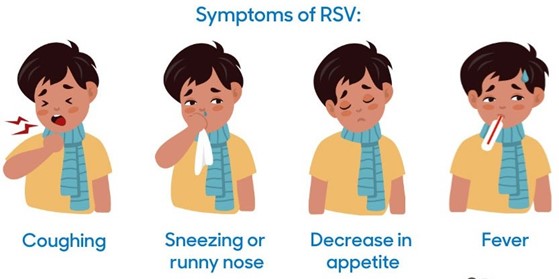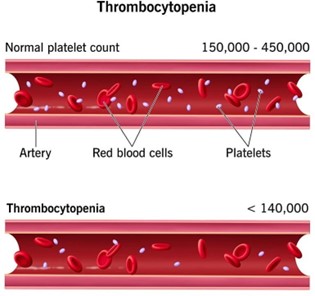The mother of a 9-month-old child who was diagnosed with respiratory syncytial virus (RSV) yesterday calls the clinic to inquire if it will be all right to take her infant to the first birthday party of a friend's child the following day. Which response should the practical nurse (PN) provide this mother?
Do not expose other children as the virus is very contagious even without direct oral contact.
Make sure there are no children under the age of 6 months around the infected child.
The child can be around other children but should wear a mask at all times.
The child will no longer be contagious, no need to take any further precautions.
The Correct Answer is A
Respiratory syncytial virus (RSV) is a highly contagious virus that can cause severe respiratory infections, especially in infants and young children. RSV is easily spread through contact with respiratory secretions from infected individuals, and can survive on surfaces for several hours. Therefore, it is important to avoid exposing other children to RSV, especially those who are under 6 months old or have a weakened immune system. The practical nurse (PN) should advise the mother not to take her infant to the birthday party to prevent the spread of RSV to other children. The PN can provide education on how to prevent the spread of RSV, such as washing hands frequently, avoiding close contact with sick individuals, and covering the mouth and nose when coughing or sneezing.

Nursing Test Bank
Naxlex Comprehensive Predictor Exams
Related Questions
Correct Answer is B
Explanation
Acute leukemia can cause thrombocytopenia, which is a decrease in the number of platelets in the blood. Platelets are essential for blood clotting, and a low platelet count can result in heavy menstrual bleeding. Therefore, reviewing the client's platelet count is the priority in response to the client's statement. The other laboratory data may also be important to assess, but platelet count is the most relevant in this situation.

Correct Answer is A
Explanation
The practical nurse (PN) should ask the client if he is planning to obey the voices, as this will help determine the client's risk for harming himself or others. The PN should also ask about the onset and duration of the symptoms and any factors that may have triggered them, such as drug use or recent stressors. Additionally, the PN should assess the client's perception of the voices, as some individuals may recognize them as a symptom of a mental illness, while others may believe them to be real. It is important for the PN to remain non-judgmental and supportive during the assessment, while prioritizing the client's safety.
Whether you are a student looking to ace your exams or a practicing nurse seeking to enhance your expertise , our nursing education contents will empower you with the confidence and competence to make a difference in the lives of patients and become a respected leader in the healthcare field.
Visit Naxlex, invest in your future and unlock endless possibilities with our unparalleled nursing education contents today
Report Wrong Answer on the Current Question
Do you disagree with the answer? If yes, what is your expected answer? Explain.
Kindly be descriptive with the issue you are facing.
